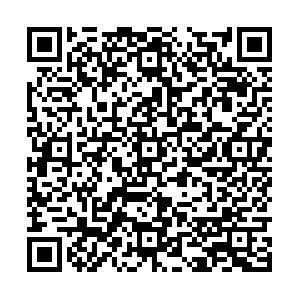The Problem of the Object in Pedagogical Theory
-
摘要: 将教育视为教育学的学科对象,确有事实上的合法性。但这一说法不能作为教育学产生的全部依据。教育学的对象自然是教育本身,但它并不是一个从外部经验简单抽象而来的概念。相反,“教育本身”是由思维创造和提供出来的对象,本就是对立于认识的主体。这一主体直指“教育是什么”的基础理论问题。从逻辑分析出发,教育可以被追溯至确定的、简单的,甚至是不能再分析的对象。这种分析的哲学传统只能在形式上达到“教育是什么”的句法完形。然而,教育的本质内涵须通过现象学本质直观来得到丰实。教育对象的确认过程也即教育意向含义的充盈过程。借用思想图像和自由想象,认识者与认识对象的普遍概念之间建立思想联系,认识者才能够认识对象。同时,教育对象自身的原初给予性,即作为普遍本质的目的和意图才能够显现出来。Abstract: When regarding education as the object of pedagogics, we acknowledge the de facto legitimacy within. However, this assertion cannot serve as the sole foundation for the emergence of pedagogy. The object of pedagogics naturally is education itself, yet it is not a simple abstraction from external experience. On the contrary, "education itself" is an object created and provided by thinking, inherently opposed to the cognizing subject. This subject infers to the fundamental-theoretical question of "What is education". From the perspective of logical analysis, education can be traced back to the existence of a definite, simple, and even unanalyzable object. The analytical tradition can only formally achieve a syntactic gestalt of "what is education?". However, the essential connotation of education must be obtained through the phenomenological essential intuition(Anschauung). The process of confirming the educational object is also the process of filling the meaning of educational intention. By employing the form of thought image and the method of free imagination, the knower establishes an intellectual connection with the universal concept of the object, thereby enabling cognition of the object. Simultaneously, the original giving nature of the educational object itself, as the purpose and intention of the universal essence, can be revealed.
-
[1] 唐莹, 瞿葆奎. 教育科学分类: 问题与框架[J]. 华东师范大学学报(教育科学版), 1993(2): 1-14. [2] 伯林. 概念与范畴[M]. 凌建娥, 译. 南京: 译林出版社, 2019. [3] 杜威. 民主主义与教育[M]. 王承绪, 译. 北京: 人民教育出版社, 1990: 347. [4] 胡塞尔. 经验与判断[M]. 邓晓芒, 张廷国, 译. 北京: 生活·读书·新知三联书店, 1999. [5] PETERS R S. Education as initiation[M]// ARCHAMBAULT R D. Philosophical analysis and education. London: Routledge, 1965: 87-111. [6] DEWEY J. Experience and education[M]. New York: Macmillan, 1938. [7] 维特根斯坦. 哲学研究[M]. 陈嘉映, 译. 北京: 商务印书馆, 2016: 3. [8] 维特根斯坦. 1914-1916年笔记[M]//涂纪亮. 维特根斯坦全集: 第1卷. 石家庄: 河北教育出版社, 2003: 47-183. [9] 舍勒. 价值的颠覆[M]. 罗悌伦, 林克, 译. 北京: 生活·读书·新知三联书店, 1997: 288. [10] 麦克莱伦. 教育哲学[M]. 宋少云, 陈平, 译. 北京: 生活·读书·新知三联书店, 1988. [11] 布鲁门贝格. 隐喻学范式[M]. 李贯峰, 译. 上海: 东方出版中心, 2023: 11. [12] 许慎. 说文解字[M]. 北京: 中华书局, 1963. [13] 王国维. 教育学[M]//民国大师文库: 第2辑. 北京: 北京联合出版公司, 2013: 9. [14] 康德. 纯粹理性批判[M]. 蓝公武, 译. 北京: 商务印书馆, 1960. [15] 项继发. 作为认识对象的教育. 北京教育学院学报[J]. 2022(2): 32-39. [16] 扎哈维. 胡塞尔现象学[M]. 李忠伟, 译. 上海: 上海译文出版社, 2007: 8-9. [17] 倪梁康. 关于想象及其各个类别的意识现象学分析[J]. 南京大学学报(哲学·人文科学·社会科学版), 2021(2): 88-99. [18] 张世英. 思维与想象——兼谈中国古典诗[J]. 北京大学学报(哲学社会科学版), 1997(5): 113-120. [19] 哈曼. 迈向思辨实在论: 论文与讲座[M]. 花超荣, 译. 武汉: 长江文艺出版社, 2020: 163. [20] 李朝东. 知识起源的前述谓经验之现象学澄清[J]. 哲学研究, 2005(3): 72-79. [21] 黑格尔. 哲学史讲演录: 第1卷[M]. 贺麟, 译. 北京: 商务印书馆, 1959: 94. [22] 海德格尔. 形而上学导论[M]. 王庆节, 译. 北京: 商务印书馆, 2017. [23] BARROW R. Does the question "What is education?"make sense?[J]. Educational theory, 1983(Summer-Fall), 191-195. -

 点击查看大图
点击查看大图
计量
- 文章访问数: 186
- HTML全文浏览量: 109
- PDF下载量: 9
- 被引次数: 0



 下载:
下载: